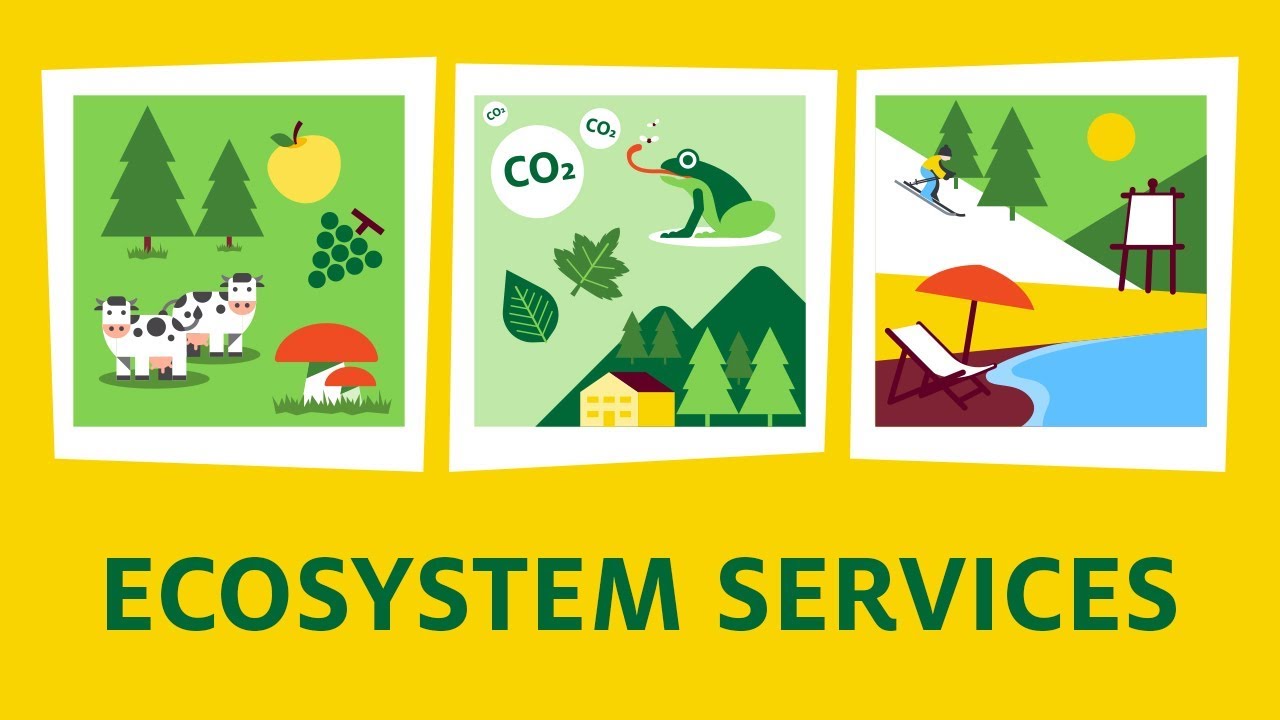
Ecosystem services are the invaluable contributions that nature provides to human well-being and the functioning of the planet. From pollination and climate regulation to water purification and soil fertility, these services are essential for our survival and the sustainability of ecosystems. Understanding ecosystem services and their importance is vital for promoting conservation efforts, sustainable development, and effective environmental management.
In this article, we will explore 16 astounding facts about ecosystem services that highlight their significance and the diverse ways in which they support our daily lives. From the remarkable capacity of forests to purify air and water to the critical role of wetlands in flood control, these facts will unveil the intricate web of interactions between humans and nature. So, let’s dive in and discover the miracles that nature offers to us through ecosystem services.
Key Takeaways:
- Ecosystem services, like providing clean water and regulating climate, are crucial for our survival and well-being. We need to protect and value these services for a sustainable future.
- Loss of ecosystems leads to negative consequences like water scarcity and decreased agricultural productivity. We must take urgent action to conserve and restore ecosystems for the benefit of all.
Ecosystems provide vital services to humanity.
Ecosystem services refer to the benefits that humans receive from nature, which are crucial for our well-being and survival. These services include the provision of food, clean water, climate regulation, pollination, and much more.
They support global food security.
Ecosystems play a fundamental role in food production by providing fertile soils, natural pollinators, and nutrient recycling. Without these services, our ability to feed the growing global population would be severely compromised.
Ecosystems regulate climate and protect against natural disasters.
Forests, wetlands, and other natural habitats help regulate the Earth’s climate by absorbing and storing carbon dioxide and other greenhouse gases. Additionally, they act as natural buffers, reducing the impacts of floods, storms, and other natural disasters.
They purify the air and filter pollutants.
Healthy ecosystems act as natural air filters, removing pollutants and harmful particles from the atmosphere. Trees, for example, absorb carbon dioxide and release oxygen, helping to mitigate climate change.
Ecosystems provide clean and fresh water.
Wetlands, rivers, and streams play a crucial role in purifying and storing freshwater. They filter out pollutants and provide a source of clean water for both human consumption and wildlife.
They enhance biodiversity and support wildlife habitats.
Ecosystems are home to millions of plant and animal species, forming intricate and interconnected webs of life. By preserving and restoring ecosystems, we protect biodiversity and ensure the survival of numerous species.
Ecosystem services contribute to human health and well-being.
Access to natural environments has been shown to have numerous health benefits, such as reducing stress, improving mental well-being, and providing opportunities for physical activity.
Ecosystems are essential for sustainable tourism.
Natural landscapes, including forests, mountains, and coastal areas, attract tourists from around the world. Preserving and responsibly managing these ecosystems is key to ensuring the long-term viability of the tourism industry.
Ecosystem services have an economic value.
While it is challenging to put a monetary value on ecosystem services, they are estimated to contribute billions of dollars to the global economy. Industries such as agriculture, fishing, and tourism heavily rely on healthy ecosystems for their operations.
Loss of ecosystems leads to negative consequences.
When ecosystems are degraded or destroyed, we lose their valuable services. This can result in decreased agricultural productivity, water scarcity, increased greenhouse gas emissions, and the loss of biodiversity.
Investing in nature conservation is cost-effective.
Protecting and restoring ecosystems is a wise investment, as it can provide substantial economic returns in the long run. Restoration projects have been proven to enhance ecosystem services and bring benefits to local communities.
Ecosystem services are interconnected.
Ecosystems rarely operate in isolation. They are connected to each other through various ecological processes, and changes in one ecosystem can have cascading effects on others.
Indigenous and local communities depend on ecosystem services for their livelihoods.
Many indigenous and local communities rely directly on ecosystem services for their survival and cultural practices. These communities have a deep understanding of the intricate relationships between humans and nature.
We are losing ecosystems at an alarming rate.
Human activities such as deforestation, urbanization, and pollution are causing the rapid degradation and loss of ecosystems worldwide. Urgent action is needed to halt this decline and ensure the continued provision of ecosystem services.
Conserving ecosystems is a shared responsibility.
Protecting and restoring ecosystems requires collaboration between governments, businesses, communities, and individuals. It is essential to prioritize sustainable practices and make informed choices to safeguard our planet’s valuable resources.
Ecosystem services are essential for a sustainable future.
The 16 astounding facts about ecosystem services highlight their vital importance for human well-being, environmental sustainability, and the preservation of our planet’s biodiversity. By recognizing and valuing these services, we can work towards creating a more sustainable and resilient future.
Conclusion
In conclusion, ecosystem services are essential for the well-being of both humans and the environment. They provide a wide range of benefits, from clean air and water to pollination and climate regulation. The intricate connections within ecosystems ensure that they function harmoniously, supporting life in all its forms.By understanding and valuing ecosystem services, we can make informed decisions to preserve and protect these vital resources. It is crucial for individuals, communities, and governments to recognize the importance of maintaining healthy ecosystems and promoting sustainable practices.As we continue to navigate the challenges of a changing climate and increasing human demands, it is imperative that we prioritize the preservation of ecosystem services. By doing so, we can ensure a sustainable future for ourselves and for generations to come.
FAQs
1. What are ecosystem services?
Ecosystem services are the benefits that humans obtain from ecosystems. These can include the provision of resources such as food and water, regulation of climate and disease, and cultural services like recreation and inspiration.
2. Why are ecosystem services important?
Ecosystem services are vital for human well-being and the health of the planet. They provide essential resources, maintain ecological balance, support biodiversity, and contribute to the overall quality of life.
3. How do ecosystems provide services?
Ecosystems provide services through various processes. For example, forests absorb carbon dioxide, helping to mitigate climate change. Wetlands act as natural filters, purifying water. And pollinators like bees and butterflies ensure the reproduction of plants and food crops.
4. Can we quantify the value of ecosystem services?
Yes, economists have developed methods to assess and assign a monetary value to ecosystem services. This allows us to better understand and communicate their importance and make informed decisions regarding their management and protection.
5. What are some examples of ecosystem services?
Examples of ecosystem services include the production of oxygen by plants, the regulation of water flow by wetlands, the provision of fish and other food sources from oceans and rivers, and the cultural and recreational benefits of natural landscapes.
Ecosystem services are truly remarkable, but there's still more to explore! If you're curious about surprising facts surrounding these vital natural processes, wetland wonders that will leave you in awe, or the incredible secrets hidden within Marshall Islands reefs, keep reading. Our collection of articles dives deeper into the fascinating world of ecosystems and their invaluable contributions to our planet. Get ready to be amazed by the intricate connections and astounding revelations that await you in our carefully curated selection of ecosystem-focused content. Satisfy your craving for knowledge and embark on a journey of discovery today!
Was this page helpful?
Our commitment to delivering trustworthy and engaging content is at the heart of what we do. Each fact on our site is contributed by real users like you, bringing a wealth of diverse insights and information. To ensure the highest standards of accuracy and reliability, our dedicated editors meticulously review each submission. This process guarantees that the facts we share are not only fascinating but also credible. Trust in our commitment to quality and authenticity as you explore and learn with us.


